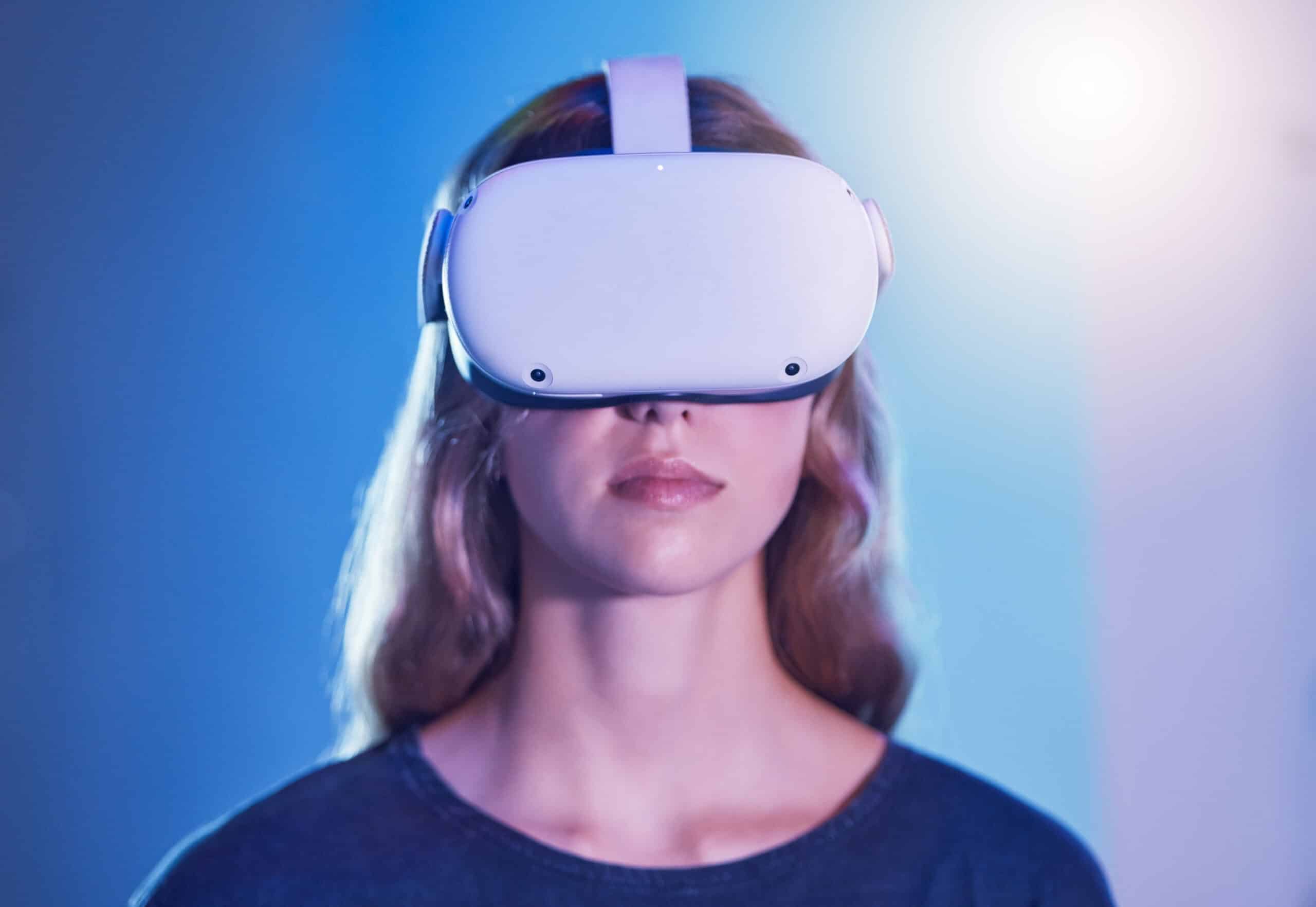
The Oculus Quest 2 is the latest version of Oculus’ VR headset, and it has already made waves in the gaming community wirh games like Beat Saber. However, it’s not just in gaming where the Oculus Quest 2 shines; it also opens up new possibilities in the professional sector.
Virtual Reality on a New Level
The Oculus Quest 2 is an autonomous VR headset, which means it does not require a PC or console to function. The device is completely standalone yet still offers high image quality and impressive performance. Compared to other VR headsets, the Oculus Quest 2 is lighter and more compact, making it particularly comfortable to wear. The headset is equipped with a powerful Snapdragon processor and offers a resolution of 1832 x 1920 pixels per eye, making it capable of creating detailed and realistic VR worlds.

Advantages of the Oculus Quest 2 in the Professional Setting
The Oculus Quest 2 offers numerous advantages for the professional setting. Thanks to its autonomous functionality, VR experiences can be presented mobile and without much effort at any location. This is particularly interesting for companies that want to present their products or services at trade shows or events. Training and education can also be easily and effectively carried out with the Oculus Quest 2. Employees can conduct realistic simulations and learn how to react in dangerous situations in a safe environment.
VR Development and the Metaverse
The Oculus Quest 2 can also take VR development to a new level. The headset comes with a simple and intuitive development software that allows beginners to create their own VR content. This opens up completely new possibilities for creating VR content in the professional setting. With the increasing demand for VR experiences, the so-called Metaverse is also growing. The Metaverse describes a virtual world that consists of different VR worlds and is visited by millions of people. With the Oculus Quest 2, companies can already prepare for entry into the Metaverse and create their own VR content that can be presented in this virtual world.
Technical Specifications
The Oculus Quest 2 is equipped with a Qualcomm Snapdragon XR2 processor that provides high performance. There are two storage options: 64GB and 256GB. The VR headset has 6GB of RAM and a refresh rate of 90Hz. The display resolution is 1832 x 1920 pixels per eye. Additionally, the Oculus Quest 2 features Wi-Fi, Bluetooth 5.0, and USB-C ports.
Graphical Performance
The Oculus Quest 2 offers impressive graphical performance that provides an immersive VR experience. The Snapdragon XR2 processor allows for higher resolution and faster refresh rates. The image quality is impressive, allowing the user to move around in realistic VR environments. The Oculus Quest 2 also supports hand tracking, making interaction with the virtual environment even more realistic.
Hand Tracking for Professional Applications
Hand tracking is one of the best features of the Oculus Quest 2 for professional applications. It allows the user’s hands to be tracked and used in the virtual world without needing a controller. This is especially helpful for training and simulations where the user’s hands need to perform important functions. Additionally, hand tracking enables realistic interaction with the virtual environment, which is of great benefit in the professional field. Therefore, the Oculus Quest 2 is a VR headset that not only offers impressive graphical performance, but also enables a new kind of interaction in the virtual world.
Oculus Quest vs. Oculus Quest 2
| Specification | Oculus Quest | Oculus Quest 2 |
|---|---|---|
| Resolution per eye | 1440 x 1600 pixels | 1832 x 1920 pixels |
| Processor | Snapdragon 835 | Snapdragon XR2 |
| RAM | 4GB | 6GB |
| Storage capacity | 64GB or 128GB | 64GB or 256GB |
| Refresh rate | 72Hz | 90Hz |
| Hand tracking | Yes | Yes |
| Oculus Link | Yes | Yes |
| Weight | 571g | 503g |
| Release date | May 2019 | October 2020 |
As the table shows, the Oculus Quest 2 has some significant improvements compared to the Oculus Quest. The resolution per eye is higher, the processor is more powerful, and there is more available RAM and storage space. The refresh rate is also higher, and hand tracking is available on both devices. Additionally, the Oculus Quest 2 is also lighter than the Oculus Quest, providing an even more comfortable wearing experience.
Overall, both the Oculus Quest and the Oculus Quest 2 are great VR headsets, each with their own advantages. However, the Oculus Quest 2 offers improved performance and quality at a lower price, making it an attractive option for VR enthusiasts and businesses.
Since the beginning of 2022, Meta no longer provides official support for the Oculus Quest 1. This means that there will be no further updates or improvements for the VR headset and technical support will also be limited. Users of the Oculus Quest 1 should therefore expect that the functionality of their VR headset may be restricted in the future. However, most VR applications and games still work on the Oculus Quest 1, as it is based on an older version of Android. So, those who already own an Oculus Quest 1 and want to continue using it can still do so, but may consider upgrading to the Oculus Quest 2 in the near future to continue benefiting from the latest features and updates.
Conclusion
The Oculus Quest 2 is an autonomous VR headset that takes virtual reality in the professional field to a new level. With its incredible benefits for mobile and effective training, presentations, and product showcases, it offers numerous possibilities for businesses. The Oculus Quest 2 enables a realistic interaction with the virtual environment through its impressive graphic performance and hand-tracking feature. Its intuitive development software allows even beginners to create their VR content and harness the potential of VR development and the Metaverse. The technical specifications and graphic performance of the Oculus Quest 2 provide an immersive VR experience, making it one of the best VR headsets for the professional sector.